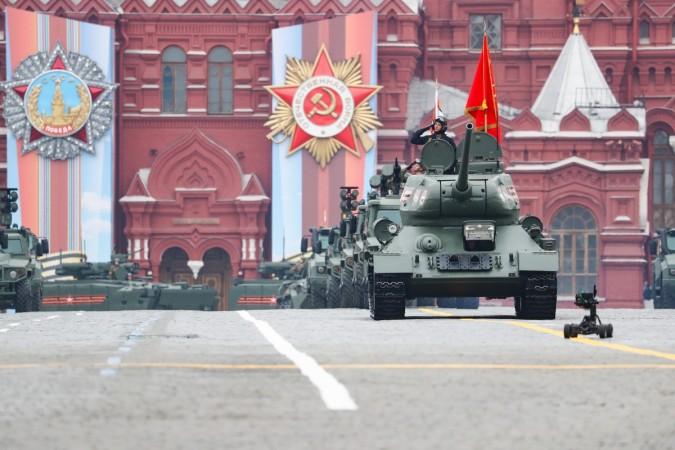
India will manufacture spare parts for Russian military equipment, in a significant development in the relations between the two countries which are making efforts to covert the decades-old buyer-seller ties into one of collaboration.
A pact in this regard was signed here on Wednesday after talks between Prime Minister Narendra Modi and Russian President Vladimir Putin which focussed on adding new dimensions to the special relationship between the two countries.
The two sides also agreed to extend by 10 more years, beyond 2020, the bilateral military and technical cooperation agreement.
In a statement to the media along with Modi after their talks, President Putin said Russia has been a reliable partner to India in the field of defence for the last 50 years and much of its military equipment, including ships, have been acquired from Russia. He specifically mentioned the aircraft carrier Vikramaditya which India purchased from Russia about a decade back.
In this context, he also mentioned Modi's visit to the Zvezda ship-building facility here.
The Russian President also referred to the collaborative project under which AK-203 rifles are being manufactured in India and said "we are ready to strengthen and expand" the ties in this field.
Briefing media persons later, Foreign Secretary Vijay Gokhale said the pact for manufacturing spare parts of Russian military equipment was in keeping with PM Modi's endeavour to covert the India-Russia relationship from one of buyer-seller to a collaborative one.
The spare parts will be manufactured under an inter-governmental agreement, he added.
Another key outcome of the Modi-Putin talks was the decisions taken in the energy sector, including a Memorandum of Understanding between the Joint Stock Company Novatek and Petronet LNG Ltd on cooperation with respect to the joint development of downstream LNG business and LNG supplies.
A programme between the Indian Ministry of Petroleum and Natural Gas and Russian Ministry of Energy was also signed on expansion of cooperation in oil and gas sector, along with an MoU on the use of natural gas for transportation.
Describing signing of these pacts as "major breakthroughs", Gokhale said energy is going to be an "emerging pillar" in the India-Russia relationship, which has so far remained focussed mainly on defence and civil nuclear cooperation.
He said India, which is in the process of diversifying its sources of energy, finds Russia as an attractive source.
The two sides agreed on a five-year road map, which will encompass two-day investments, the Foreign Secretary said.
He said India was looking at investing in a new energy block in Russia's Eastern cluster.
President Putin has promised that energy supplies from his country to India will be safe and cost effective, Gokhale said.
To a question, the Foreign Secretary asserted that India's move to expand energy ties with Russia had nothing to do with the problems faced on sourcing oil and LNG from Iran.
He said Iran has been a reliable and major supplier of energy to India but New Delhi was looking for more sources because of its growing needs.
Gokhale said that in a "turbulent" world, LNG (Liquefied Natural Gas) is a reliable source of energy and Russia has been India's long term reliable partner.
Indian Ambassador to Russia Venkatesh Varma said India already was sourcing LNG from Russia and the effort now is to expand it.
Another major significant decision was a Memorandum of Intent between the Indian Ministry of Shipping and Russia's Ministry of Transport on the development of maritime communications between the Port of Chennai and the Port of Vladivostok.
The two countries also signed an MoU in the road sector.









